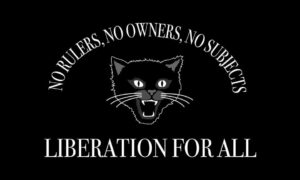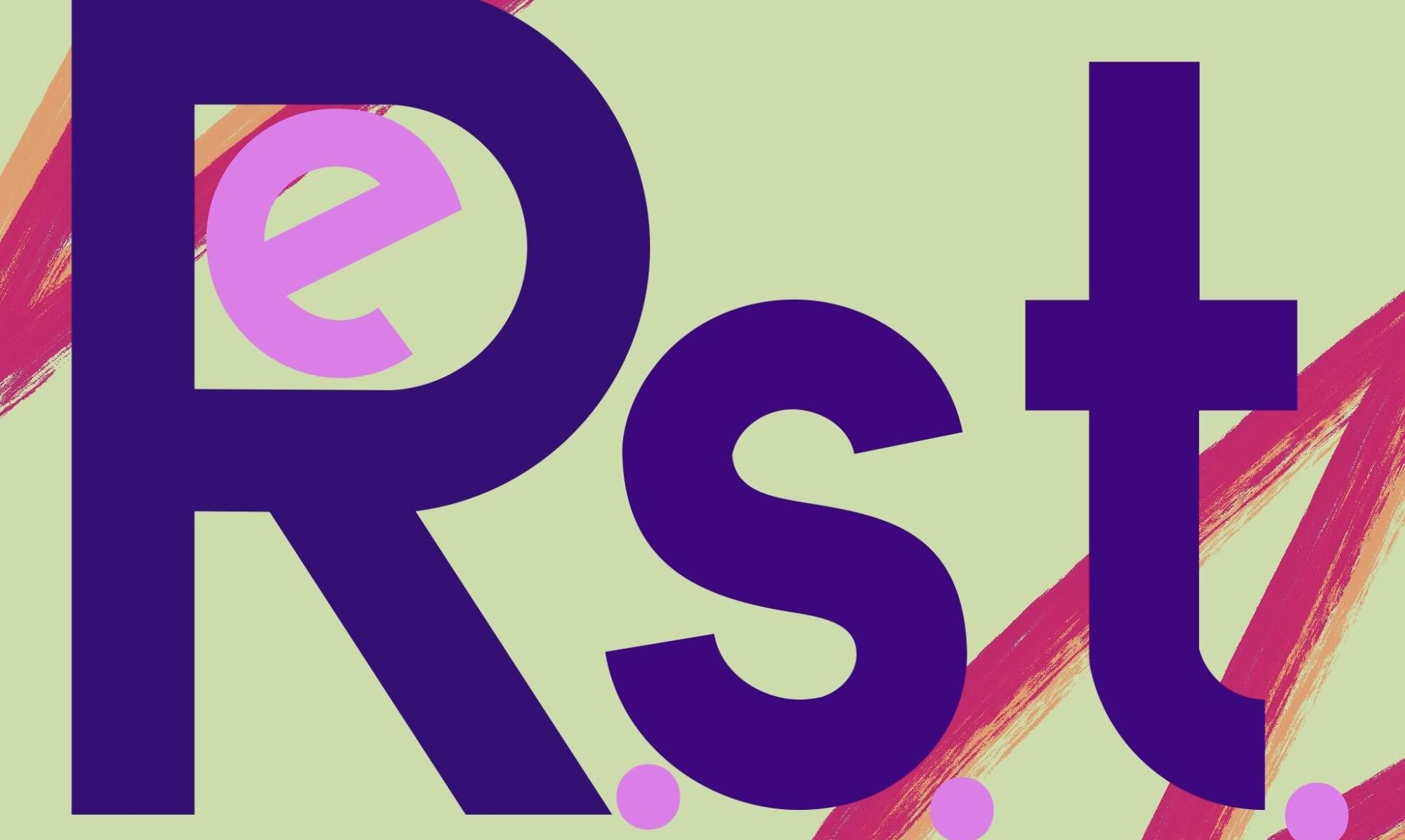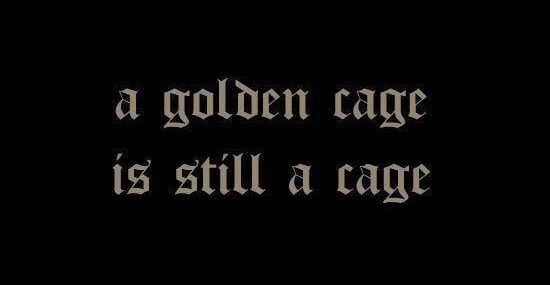Riceviamo e diffondiamo:
(IT version) Sulla cooptazione delle lotte dal basso da parte delle associazioni animaliste
Questo scritto nasce ed è mosso, e lo immagino muoversi nel tempo e nello spazio, grazie a due sentimenti: la rabbia e l’amore.
La rabbia nasce, invece, come strumento di motore in risposta all’indignazione profonda che provo nel vedere questa stessa lotta svenduta a pochi cents, degradata per mano di un sistema di cooptazione ai limiti del turbocapitalismo, che tutto mangia e tutto ingloba.
Se è già noto che la lotta di liberazione animale, come altre lotte, è stata già ridotta a merce e fagocitata dal sistema capitalista, continuo, forse ingenuamente, a stupirmi delle cecità a cui vedo abbandonarsi moltз attivistз antispecistз che oggi barattano la radicalità per una fetta di visibilità.
E chiariamolo fin dall’inizio: non si sta qui parlando di negare le alleanze. Siamo francamente stufз di nasconderci dietro alla retorica per cui occorra necessariamente allearsi per raggiungere l’obiettivo (e quale obiettivo? ndr). Stare fianco a fianco di chi replica modelli che desideriamo combattere, diciamocelo una volta per tutte, significa lavorare per l’oppressore.
L’aziendalizzazione della lotta dirotta le istanze di liberazione totale verso l’accondiscendenza alle stesse strutture di dominio che opprimono animalз umanз e non, replicandole e non creando nessuna frattura reale.
Da antispecista, non posso che constatare con amarezza che, mentre miriamo a distruggere ogni gabbia, siamo finitз a chiamare “direttore” chi avrebbe dovuto essere “compagnə”.
E posto che la mia agency non dipende dall’approvazione altrui, aspiro sinceramente a vivere senza gerarchie e senza coercizione alcuna. Ci pensa già il lavoro del capitale a rendermi schiava.
Dovremmo piuttosto essere motivatз da un desiderio e una lealtà condivise, e non dal profitto, dal dovere o da qualsiasi altro compenso o astrazione.
Come comunità antispecista ci chiediamo spesso nei nostri scambi colloquiali se sia possibile mantenere la nostra lotta alla radicalità da cui è nata. La liberazione animale non è un prodotto da vendere sui social, non è un brand, non è una corsa ai followers o alla story che possa attirare più audience. Sinceramente? Nemmeno se questo comporta avere più fondi per le vostre campagne, perché sono soldi che puzzano di privilegio.
Le tattiche possono avere un senso quando sono condivise, le decisioni hanno un senso se sono collettive, una comunità può dirsi tale quando ognunə può esprimersi con lo stesso grado di ascolto e senza il timore di essere emarginato perché già in partenza con meno potere. Offrire opportunità, soldi e contratti a chi si allinea ed emarginare invece chi non incarna un modello preconfezionato significa creare barriere all’ingresso, fare proselitismo, chiudere i cerchi.
Come è possibile che alcun attivistз nel mondo antispecista non si rendano conto che è proprio il sistema che vorremmo combattere a trasformarci in brand duellanti, riducendoci a un ennesimo ”tweet”, a un marchio sulla maglietta da esibire sennosiamaichesuccede!
Mi pare superfluo dire che il veganwashing e la propaganda di sinistra pro-LGBT non hanno mai spostato niente: il sistema va questionato e distrutto, non accarezzato nei luoghi istituzionali o addirittura replicato nei nostri spazi.
“Indossa la nostra maglietta” “Non mettere il berretto” “Vestiti di nero” “Portami un caffè” “Non bere” “Non usare sostanze“ “Passa il megafono solo a chi obbedisce”. Per carità!
Che sia chiaro una volta per tutte: un brand non potrà mai essere una politica collettiva condivisibile; la professionalità (in termini imprenditoriali) di un attivistə non può essere un valore da perseguire, ancor meno mediante l’estetica, il marketing, o codici di comportamento imposti.
Il proibizionismo e la sorveglianza, poi, lasciamoli allo Stato, per cortesia. Che la polizia è già troppa in giro.
Dovremmo, se fossimo una comunità, impegnarci a non idealizzare o mettere qualcunə (o, come più spesso accade, auto-posizionarci) su un piedistallo o, più precisamente, a favore di camera.
In questi ultimi mesi ho assistito a clientelismo, servilismo e nonnismo nel mondo animalista degni della politica istituzionale: un vero schiaffo per chi cerca nella lotta antispecista uno spazio di ribellione.
Quante altre gabbie si creano usando lз attivistз come carne da macello, come un numero, come qualcosa che si può vendere, posizionare e spostare, di cui si può comprare addirittura il silenzio?
Mi fanno paura le associazioni che “dialogano” con la politica istituzionale millantando di voler migliorare le cose “da dentro” ma sedendosi comodamente in poltrona appena ce n’è l’occasione. Che affanno in questi luoghi di potere, eh?
Possiamo scegliere come organizzarci, senza dover per forza entrare a far parte di un’istituzione preesistente e prendere ordini. Organizzarsi non dovrebbe significare rinunciare alla nostra intelligenza e senso critico per diventare gli ingranaggi di una macchina. Da un punto di vista libertario, la struttura organizzativa dovrebbe massimizzare la libertà e il coordinamento volontario a qualunque livello, senza “pass” più o meno dichiarati alla partecipazione dellз attivistз.
Se non ci è permesso questionare le logiche organizzative, perché l’aziendalizzazione è anche privatizzazione, allora voglio questionarle qui ed ora con questo scritto, perché la lotta di liberazione animale è una questione politica e dunque pubblica. E sì, lo è anche se avete trasformato la lotta in lavoro privato.
L’immaginazione radicale è l’unico strumento che mi resta per una liberazione reale.
E se proprio vi siete ritrovatз nel girone infernale di certe associazioni, eccovi un caloroso invito a questionare chi avete intorno sul se in passato abbia mai comprato il silenzio di qualcunə, lo abbia allontanato illegittimamente o abbia imbastito documenti legali per costringerlə a non rivelare fatti e accadimenti di cui evidentemente non è ammesso parlare. Probabilmente scoprirete cose interessanti.
Non ho il privilegio di poter fare nomi o pagare avvocat3, ma solo spazi molto meno illuminati da cui provare a non restare mai in silenzio.
Per questo ho deciso di affidare questo testo alla ReST, che prende parola sulle dinamiche tossiche negli spazi di movimento.
Con amore e rabbia, una compagna antispecista e anarchica
(ENG version) On the cooptation of the grassoroots struggles by animal-rights associations
This writing is born and is moved, and I imagine it moving through time and space, thanks to two feelings: anger and love.
The anger, on the other hand, arises as a driving force in response to the profound indignation I feel at seeing this same struggle sold off for a few cents, degraded by a system of cooptation bordering on turbocapitalism, which consumes and absorbs everything.
While it is already known that the struggle for animal liberation, like other struggles, has already been reduced to a commodity and swallowed up by the capitalist system, I continue, perhaps naively, to be amazed by the blindness to which I see so many anti-speciesist activists abandoning themselves, who today trade radicalism for a slice of visibility.
The profound difference between welfare and animal liberation cannot and will never be denied by any form of “washing“, or better yet, by any “mixing“.
The corporatization of the struggle diverts the demands for total liberation towards compliance with the same power structures that oppress animals, both human and not human, replicating them and creating no real fracture.
As an anti-speciesist, I can only notice with bitterness that, while we aim to destroy every cage, we have ended up calling “director” those who should have been “comrades“.
Contrary to traditional top-down approaches, horizontal spaces give us more freedom because we don’t have to subject our decisions to processes of ratification and approval from a master, just as happens in capitalist, fascist, and socialist power structures.
Capital’s work already enslaves me enough.
Rather, we should be motivated by a shared desire and loyalty, not by profit, duty, or any other reward or abstraction.
Honestly? Not even if that means more funding for your campaigns, because that money reeks of privilege.
Tactics can make sense when shared, decisions make sense when collective, and a community can be considered such when everyone can express themselves with equal listening and without the fear of being marginalized because they already have less power to begin with.
Offering opportunities, money, and contracts to those who fall into line while marginalizing those who don’t embody a prepackaged model means creating barriers to entry, proselytizing, and closing loops.
How is it possible that some activists in the anti-speciesist world don’t realize that it’s the very system we seek to fight that turns us into dueling brands, reducing us to yet another “tweet,” a brand on a T-shirt to be displayed otherwise ohmyGodwhathappens?
It seems superfluous to me to say that veganwashing and left-wing pro-LGBT propaganda have never moved anything: the system must be questioned and destroyed, not caressed in institutional halls or even replied in our places.
“Wear our T-shirt” “don’t wear a cap” “dress in black” “bring me a coffee” “don’t drink” “don’t use drugs” “only pass the megaphone to those who obey” For goodness sake!
Let’s be clear once and for all: a brand can never be a shared collective policy; the professionalism (in entrepreneurial terms) of an activist cannot be a value to be pursued, even less so through aesthetics, marketing, or imposed codes of conduct.
As for prohibition and surveillance, please leave them to the State. There’s already too much police around.
No, I’m sorry to inform you that we’re not on the same side of the fence.
We should, if we were a community, commit to not idealizing or putting anyone (or, as more often happens, placing ourselves) on a pedestal, or, more precisely, in favor of the camera.
In recent months, I’ve witnessed cronyism, servility, and hazing in the animal rights movement worthy of institutional politics: a real slap in the face for those seeking a space for rebellion in the anti-speciesist struggle.
How many other cages are created by using activists as cannon fodder, as numbers, as something to be sold, positioned, and moved, even whose silence can be bought?
I’m afraid of organizations that fear being destabilized and disrupted. They hide — and not even so subtly — a hatred of dissent that actually reveals a profound fear of honest introspection.
I’m afraid of associations that “dialogue” with institutional politics, claiming to want to improve things “from within” but then sitting in those armchairs whenever the opportunity arises. What a hassle in these places of power, isn’t it?
We can choose how to organize ourselves, without necessarily having to join a pre-existing “institution” and take orders. Organizing shouldn’t mean sacrificing our intelligence and critical thinking to become cogs in a machine. From a libertarian perspective, the organizational structure should maximize freedom and voluntary coordination at all levels, without more or less explicit “passes” to activists’ participation.
If we’re not allowed to question organizational logic, because corporatization also means privatization, then I want to question it here and now with this piece, because the struggle for animal liberation is a political and therefore is a public issue. And yes, it is, even if you’ve transformed the struggle into a private enterprise.
Radical imagination is the only tool I have left for real liberation.
This text, therefore, is an invitation to activists who claim to believe in grassroots struggle, not to simply invoke radicalism, but to practice it by uniting ourself on the basis of affinity.
And if you’ve unluckly find yourself in the infernal circle of certain associations, here is a warm invitation to question those around you about whether they have ever bought someone’s silence in the past, unlawfully removed them, or concocted legal documents to force them not to reveal facts and events that are clearly not allowed to be discussed. Probably, you‘ll end up discovering interesting things.
I don’t have the privilege of naming names or paying lawyers, but only much less enlightened spaces from which to try never to remain silent.
That’s why I decided to entrust this text to ReST, which speaks about toxic behaviours in movement spaces.
With love and rage, an anti-speciesist and anarchist comrade


